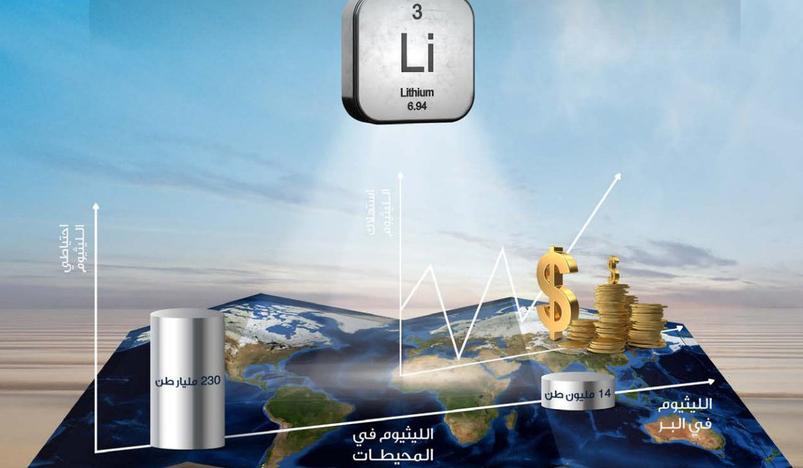
Extract Lithium From Seawater
Researchers at Qatar University (QU) has managed to develop a system to extract lithium from seawater within the framework of a research project supported by Qatar National Research Fund and Graduate Sponsorship Research Award (GSRA).
The researchers developed electrochemical system to capture lithium with the aid of temperature resulting in the extraction of 8 mg and selectively (purity 51.8 percent) of lithium from the treated seawater.
According to the research team who utilized a solar-concentrated thermoelectric device and a membrane distillation unit, the system captures and enriches lithium ions while minimizing energy consumption and carbon emissions.
The team pointed out that the electrochemical system to capture lithium offers a cost-effective and environmentally friendly alternative to traditional mining methods, as previous extraction methods have been taking more time with the utilization of a substantial quantity of chemical materials that are harmful to environment.
The successful collaboration between QU and international institutions, including the University of Technology Sydney and the University of Sydney in Australia, highlights the global importance of this research, which underscores the significance of Lithium as the "White Gold" of the modern era and plays a crucial role in energy storage for applications such as electric vehicles and electronics and when paired with renewable energy sources, has the potential to reduce our dependence on hydrocarbon-based fuels, making a significant impact in our fight against climate change.
The countries that have installed seawater reverse osmosis (SWRO) plants, such as Qatar have a promising opportunity to extract lithium from the highest salinity seawater by utilizing these systems.
According to the researchers' perspectives, the reallocation of brine resulting from the reverse osmosis desalination to be a source of lithium through utilizing Spent Lithium-Ion Battery (SLIB) Materials-Based Membrane Capacitive Deionization (MCDI) System, is a good example of promoting circular economy and the sustainable development goals 2030.
(QNA)
.jpg)
Qatar Secures Place Among the World's Top 10 Wealthiest Nations
.jpg)
Hamad International Airport Witnesses Record Increase in Passenger Traffic

Saudi Arabia: Any visa holder can now perform Umrah

What are Qatar's Labour Laws on Annual Leave?
Leave a comment